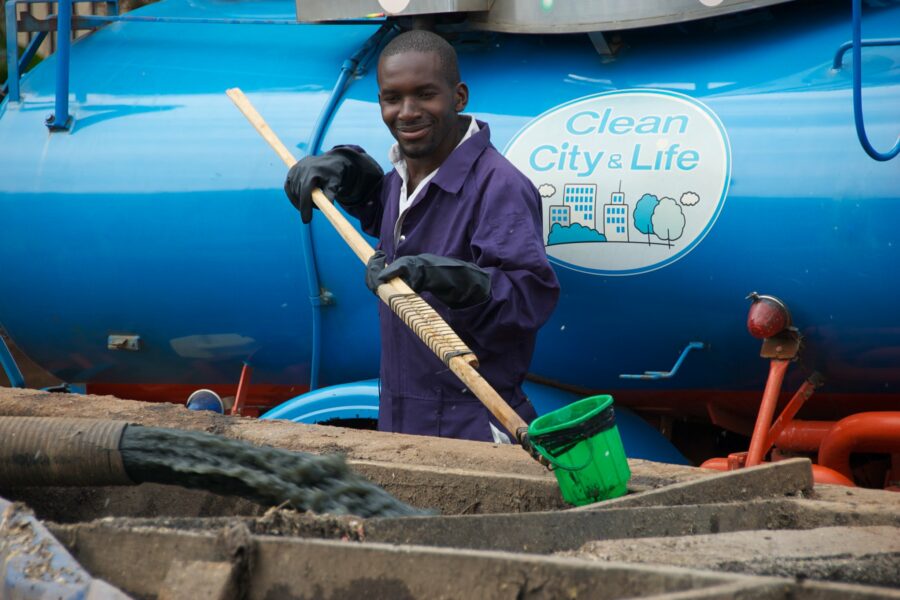Resource recovery from sanitation and waste management can be a lucrative business. You can get it up and running in your city with support of the REVAMP tool.
As an undergraduate student in Kampala, my head was full of thoughts about how I was going to make a living after my studies. Back then Rich Dad Poor Dad was still a best-seller, and I thought to myself: I can become a billionaire if I sell a billion of something to a billion people. Needless to say, it would have to be something that anyone can afford, like toothpaste or chewing gum.
So, I wondered, what does every human need? It dawned on me: everyone needs water, food, and energy, every day. The next question was how I could make valuable goods from all the three as a civil engineer.
A fascination with sanitation
Over the course of my studies, I became interested in the intimate connections between water, food, and energy. I learnt about the water and nutrient cycles, and how we can recover resources from waste and use them to fertilize crops and generate energy.
The world’s population is rapidly growing, and much of this growth is happening in low- and middle-income countries. Most people now live in cities, and this proportion is likely to increase with time. These cities are going to be thirsty, hungry, and energy demanding, and we will need to become much more efficient in the ways we manage our resources if we are to meet their demands.
Looking at the supply side, each of us generates about 1.5 litres of excreta daily – all together, a huge amount of waste. We can, of course, flush it down the drain and into our rivers, lakes, and oceans; or we can turn our pee and poo into valuable resources, like power and protein.
Such resource recovery cuts the costs we all have to bare from emissions of pathogens and pollutants. For instance, consider Lake Victoria – a mammoth source of fresh water not only for Kampala, where I come from, but for several other cities in Kenya and Tanzania. Releasing waste into Lake Victoria not only drives the treatment costs of drinking water up, but it also amplifies risks to public health arising from water-borne diseases. Additionally, the abundance of organic matter in excreta chokes life in water, affecting fish stocks and other aquatic animals.
A resource recovery approach to sanitation and waste management brings water, food, energy, and health systems together. And extracting value from waste can be a lucrative business. For one thing, the raw materials are cheap, and a steady, abundant supply is guaranteed as long as humans exist.
This post was originally published on www.sei.org»

